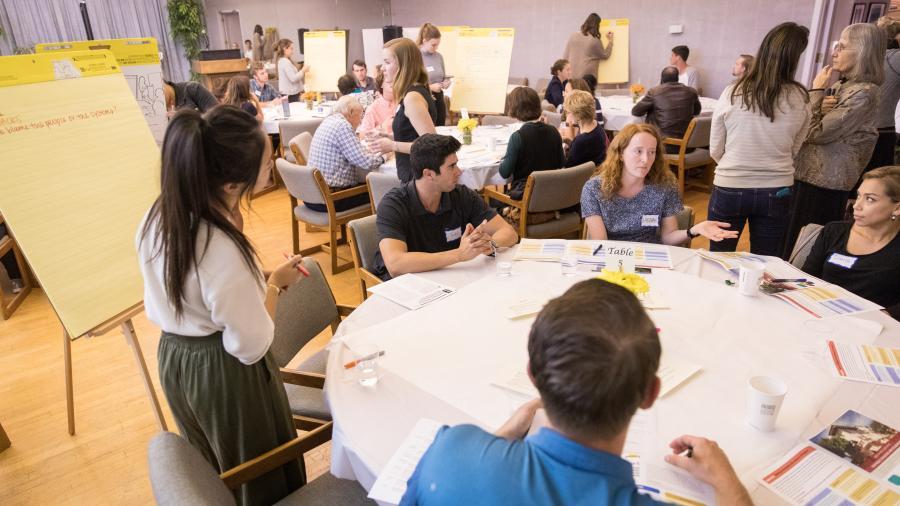Westmont Magazine Tackling Difficult Issues with Productive Deliberation

Two Westmont professors seek to encourage dialogue on difficult issues in the local community. Deborah Dunn, professor of communication studies, and Rachel Winslow, director of the Westmont Center for Social Entrepreneurship and assistant professor of history, have created the Westmont Initiative for Public Dialogue to encourage citizens to participate in our democracy and work together to solve “wicked problems.”
Dunn and Winslow spent a year as research fellows with the Kettering Foundation in Dayton, Ohio, to prepare. “Our mission is to work with neighbors to speak and listen well together about challenges facing the Santa Barbara community to promote our common good and human flourishing,” Dunn says.
“By facilitating these discussions, we hope to equip students and neighbors with the tools they need to cultivate healthy conversation and careful listening,” Winslow says.
They held the first community conversation in Santa Barbara in April 2018 to examine how the region cares for its vulnerable children, focusing on the foster care system. An event in Santa Maria July 12 addressed the same issue.
A conversation in November focused on immigration using a framework established by the National Issues Forums Institute.
The discussion, “Coming to America: Who Should We Welcome, What Should We Do?” raised difficult questions with no easy answers:
- Should we strictly enforce the law and deport people who are here without permission, or would deporting millions of people outweigh their crime?
- Should we welcome more newcomers to build a more vibrant and diverse society, or does this pose too great a threat to national unity?
- Should we accept more of the growing numbers of refugees from war-torn regions, or should we avoid the risk of allowing in people whose backgrounds may not have been fully checked?
- Should our priority be to help immigrants assimilate into our distinctively American way of life, including learning English, or should we instead celebrate a growing mosaic of different peoples?
“The concerns that underlie this issue are not confined to party affiliation, nor are they captured by labels like conservative or liberal,” Dunn says. “We want to help people frame issues well.”
Dunn and Winslow sought broad representation from groups providing services to immigrants and with vested interest in the issue. They met with various stakeholders ahead of time and engaged them in conversation. Individuals registered to participate on a first-come, first-served basis. Westmont students served as facilitators for these events.